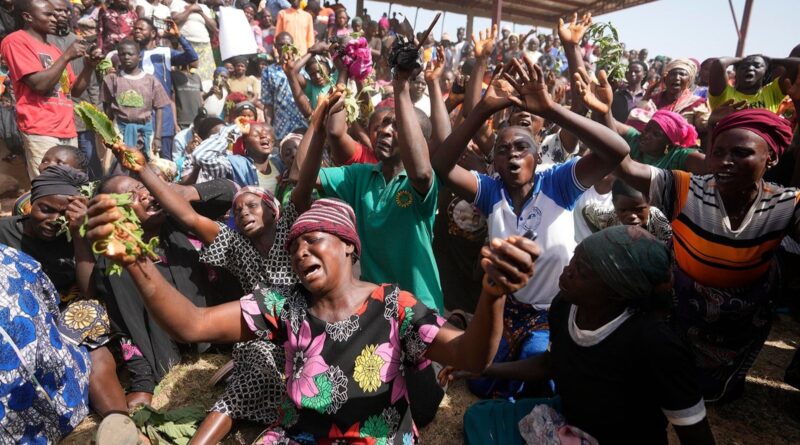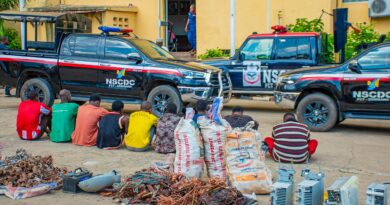Nigeria’s Christians Under Fire and Denial
Nigeria’s Christians Under Fire and Denial
As the world marks the International Day of Prayer for the Persecuted Church, the cries of Nigeria’s Christians echo across a nation where faith too often invites death. From the Middle Belt to the northeast, thousands of believers face relentless attacks from extremist groups, while officials and diplomats continue to deny the scale of the bloodshed.
Despite daily killings, Nigeria’s government insists these are mere “clashes” between herders and farmers. Yet on the ground, it is the Christian farming communities who bear the brunt of the violence, their villages razed and families scattered.
Mounting Calls for Action
In Washington, momentum is building to hold Nigeria accountable. Senator Ted Cruz recently introduced the Nigeria Religious Freedom Accountability Act, seeking renewed U.S. scrutiny of the country’s human rights record. Representative Marlin Stutzman has tabled a companion bill in the House.
Human rights advocates are also intensifying pressure. On October 15, Nina Shea of the Hudson Institute’s Center for Religious Freedom, joined by 34 civic and faith leaders, petitioned President Trump to redesignate Nigeria as a “Country of Particular Concern” for egregious violations of religious freedom. The petition accuses Nigeria’s government of enforcing blasphemy laws and tolerating “relentless aggression” against Christian farming families.
Trump, responding on Truth Social, declared his intention to make Nigeria a CPC again, a move that would compel the State Department to confront Abuja’s failures.
ALSO READ: Shamelessness as Virtue: Africa’s New Political Currency
The Grim Statistics of Persecution
Since 2009, over 52,000 Christians have been killed and more than 20,000 churches attacked, according to Nigeria’s International Society on Civil Rights and Rule of Law. The Observatory of Religious Freedom in Africa (ORFA) found that between 2019 and 2023, Christians were six times more likely to be killed than Muslims. Of the 30,880 civilians murdered in that period, nearly 17,000 were Christians.
Most of these atrocities were committed not by Boko Haram or Islamic State factions, but by armed Fulani herders. They storm villages with cries of “Allahu Akbar,” torch homes and farms, and displace millions. The pattern, human rights experts argue, points to a coordinated effort to seize land and Islamize parts of central Nigeria.
Yet, as the petition notes, the Nigerian government “fails to investigate who is arming the Fulanis” and rarely prosecutes attackers. Security forces are routinely warned of impending raids but seldom respond. The victims, mostly farmers and clergy, languish in displaced camps with little assistance.
The Politics of Denial
Western diplomats have largely adopted Nigeria’s narrative. U.S. Ambassador Richard Mills recently told journalists that the conflict “is not specifically targeted at any group,” echoing President Bola Ahmed Tinubu’s insistence that it is not religious.
The 2023 U.S. State Department report even blamed the violence on “climate change” and competition over land, dismissing religious persecution as secondary. Critics say this framing reflects political convenience rather than truth, as Nigeria remains a key U.S. trade partner in Africa.
Such diplomatic euphemisms, advocates warn, risk legitimizing genocide by erasing its motive. They turn targeted killings into neutral “clashes” and leave millions of Christians invisible in their suffering.
Voices from the Ground
Catholic Bishop Wilfred Anagbe of Makurdi, who testified before the U.S. House Subcommittee on Africa, described his region as “a church under Islamist extermination.” Soon after his testimony, Fulani militants attacked his home village and killed 12 of his relatives.
Other clergy have shared similar stories of priests kidnapped, parishes burned, and congregations forced into exile. More than 100 pastors and Catholic priests were abducted for ransom this year alone. Many never returned.
Faith, Advocacy, and the Moral Imperative
As churches worldwide gather for the International Day of Prayer on November 2 and 9, the persecution of Nigerian Christians demands more than sympathy. It requires sustained advocacy, policy action, and international pressure.
Writer Greg Maresca recently described Nigeria’s crisis as “one of the worst persecutions in modern times.” He calls for a moral awakening beyond geopolitics. “As St. Paul affirms in 1 Corinthians 12:26, ‘If one member suffers, all suffer together.’ Christians are called to bear witness, speak out, and act to end the atrocities unfolding across Africa,” he writes.
Without decisive intervention, the Christian presence in parts of Nigeria could vanish within a generation.
A Call to Conscience
The plight of Nigeria’s Christians is not only a human rights crisis; it is a moral test for the global Church and the international community. Prayer is vital, but prayer must be paired with truth-telling and accountability.
Silence emboldens the killers. Diplomacy that denies persecution perpetuates it. As candles are lit this week for the persecuted, the world must remember faith without action is complicity.
Content Credit: Ohidah Oluwaferanmi
Image credit: The Roy report




